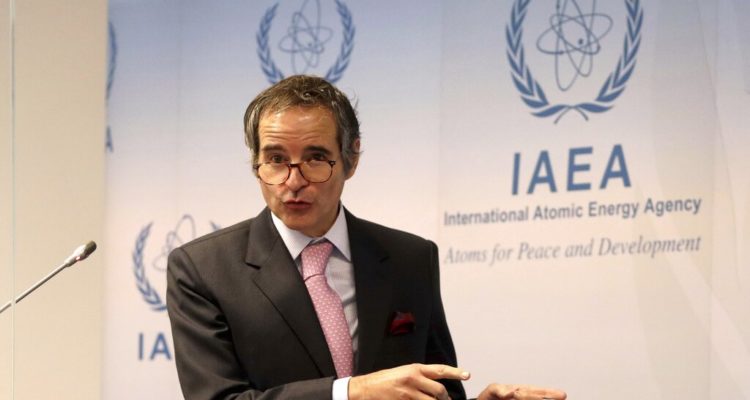Tehran is refusing to let inspectors replace cameras’ memory cards in a key centrifuge manufacturing plant.
By Batya Jerenberg, World Israel News
The head of the International Atomic Energy Agency (IAEA) said that Iranian non-cooperation means that the organization’s ongoing oversight of the country’s nuclear program is “no longer intact” in an interview with NBC News aired Saturday.
While Iran has not allowed snap inspections for months, a requirement of the 2015 nuclear deal known as the JCPOA, IAEA head Rafael Grossi received permission in September to change the batteries and memory cards in cameras permanently placed in Iran’s nuclear facilities. The mechanical monitors have enabled a continuous record of sorts to be kept, even though Tehran insisted on sealing away the full memory cards instead of allowing them to be reviewed.
“We will be able to keep the information needed to maintain continuity of knowledge,” Grossi said at the time.
However, the Iranians refused the IAEA access to one of its key centrifuge assembly plants, citing an ongoing investigation of an attack on the site.
In June, the factory in Karaj, on the outskirts of Tehran, was hit by a small drone launched near the facility by unknown perpetrators, causing an unknown amount of damage. Iran has accused Israel of being behind the attack on the site, which was allegedly on a “hit list” of nuclear-related targets Jerusalem previously provided the Trump administration. Israel has remained mum on the attack.
“It hasn’t paralyzed what we are doing there, but damage has been done, with a potential of us not being able to reconstruct the picture, the jigsaw puzzle,” Grossi told NBC. “If and when the JCPOA will be restarted, I know that for the JCPOA partners to go back to an agreement, they will have to know where they are putting their feet.”
As Grossi put it, “The IAEA’s focus is on… making sure that when and if there is a return to the JCPOA then the whole thing would be verifiable. One should never assume that we are the guarantors of whatever is agreed at the political table.”
When asked if the IAEA is still confident that it would be able to tell “if Iran were to move today to race toward a bomb,” Grossi answered positively, despite the Iranian denial of access to its inspectors. He also made it clear that he doesn’t believe the Iranians are doing such a thing.
“I don’t have any impression or any information indicating that that is the case,” he said. This, despite the IAEA admitting in its third quarter report to member countries that Iran has already enriched up to 10 kilograms of uranium to a 60% level of purity and produced a small quantity of uranium metal, both of which Western powers contend have no civilian use. Both American and Israeli officials, including Defense Minister Benny Gantz, have said recently that Iran is only a few months away from developing the materials required for nuclear capability, even though it would take longer for it to have the ability to install a working weapon on a missile.
Grossi said he hoped to be going back to Iran “soon,” and meet with its new foreign minister, Hossein Amirabdollahian, whom he has yet to speak with.
“It’s very important … so when there is a problem, when there is misunderstanding, when there is a disagreement, we can talk about it. I used to have it before, and I would assume it would be the normal thing,” he said.
He is also a firm backer of U.S. efforts to renew negotiations with Iran over the nuclear deal, which Iran put on hold since July.
“If diplomacy fails, you may be confronted with a situation that would have enormous political impact and reverberations in the Middle East and beyond,” he said.





